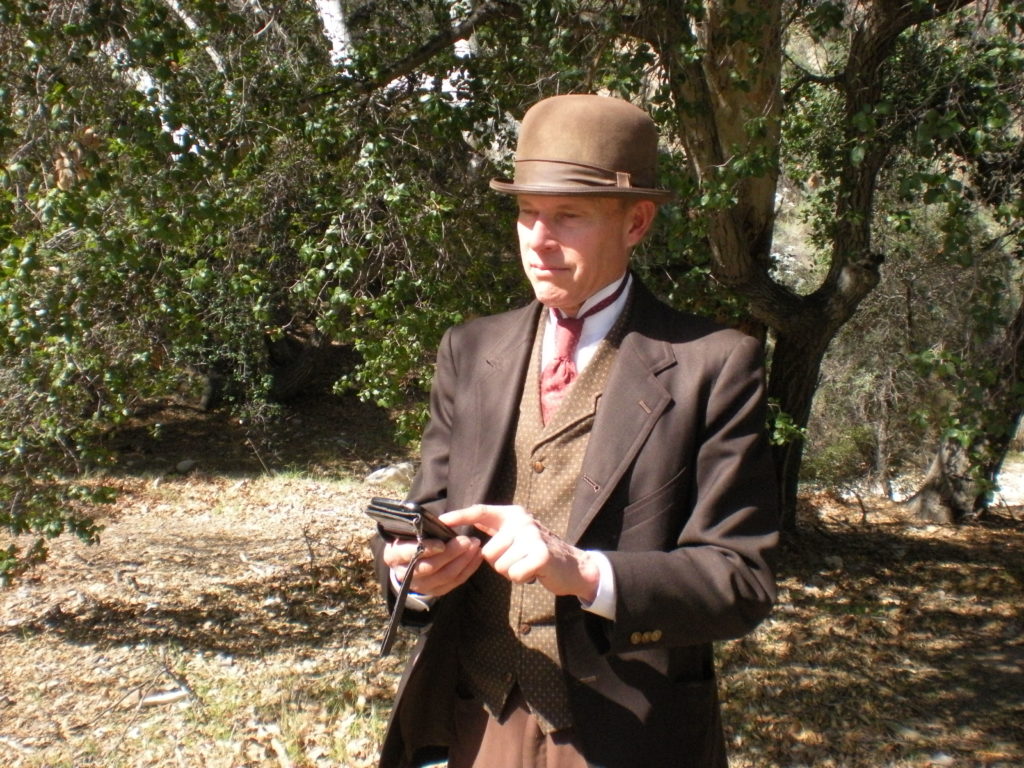UNITED STATES—I am in the Goldwyn Branch of the public library and I am missing something: my first national appearance on TV. In six minutes there is going to air an awards show, using the arrival of a famous emcee, facing a series of obstacles before reaching the stage, a paparazzi, an autograph hound, and me, a mop-wielding janitor.
Handling a mop had been an integral job of managing a laundromat in West Hollywood for 12 years. And now art was asking me to imitating that piece of my life. How sweet is that!
Danny Trejo’s first movie role, he was visiting a set with a friend, and someone asked if he could act like a convict. He’d been in Soledad and every other penitentiary in California, and he replied, “I think I can give it a shot.”
You know, I think if you are born for Hollywood, Hollywood will come for you. This was the case of “Killer Klowns from Outer Space.” I was clerking in my father’s drug store in Watsonville, as far as you could ever get from Hollywood, and a location scout wanted to use the store for a scene. I volunteered my services as an actor and I got to double for one of the leads being hauled in the back of a police car.
So when you see what’s become a cult classic (something nobody could see coming at the time) it’s my head in the cop car.
For years after that, Hollywood remained largely forgotten. I lived out of the country for many years. There was a Christmas party when I’d been back in L.A. for a while, and a woman asked me, “What brought you to Los Angeles?” And this disarmingly honest answer came out, “Movies.” Both of us cracked up, it was both true and hilarious.
You know, not long after that a friend invited me to an acting class. “This might interest you as a writer.” Well, I went in there and my jaw dropped. You mean you could study this stuff!
The short of it is, I started acting again. I suddenly found myself dressed as an 1830 American soldier. It was hot, burners fume gnarly smoke that evokes asphyxia and memories of winter housing in New York where the construction guys were just finishing up. The uniform was thick, heavy wool, and we’re to run from point A to point B between flames and runaway horses. I came darn close to passing out. A native American actor has to sit down on a chair. I thought I was going to choke both metaphorically and physically. Two days of grueling work in August in Chatsworth were telescoped into a flashback of a few seconds.
Now that I have seen “The Revenant” twice, up close on the big screen, I can testify that for a split-second, I appear as a burnt orange silhouette, amid the butchery and madness, as I slowly step around a the corner of a hut, 20-pound musket raised. So there is a bit of me that belong to celluloid immortality.
Often the most satisfying experiences leave no trace, only in the heart and memory. In “LBJ, All the Way,” the adaptation of a play, starring Bryan Cranston, focusing on LBJ and his role in passing landmark civil rights legislation. I was a Graflex lugging, cigar-smoking photographer throughout, from the East Room in the White House to the Garden at the LBJ Ranch, to the 1964 Democratic convention in Atlantic City. You would think I would have been impossible to miss. But nobody has reported seeing a trace of me.
That’s OK. I got an unforgettable immersion in history and in acting: there was a smorgasbord of styles, Cranston, always in character and yet always accessible, Ladybird (Melissa Leo) so disciplined and distinguished, Anthony Mackie who could be talking animatedly about martial arts and then the next second slip into Martin Luther King. Aisha Hinds stood out in a huge way; she was the very embodiment of somebody who’s been grievously wronged and whose towering dignity shows. You felt something even before opening her mouth, and recreating a Fannie Lou Hamer’s speech at the 1964 Democratic convention about how Mississippi police arrested, beat and groped her, for trying to sign up more Black voters.
I would have hurt the actress’ feelings to say “You were better than the original,” but that’s how true she was.
LBJ had a pivotal speech for the press in the ranch garden, where he bares what this legislation means for him and his whole life, starting from his stint as a first-grade teacher in Depression era Texas. I was mesmerized. Something like 21 takes were done, and Cranston always did a little something different at the beginning and the end. It was fascinating and I took the occasion to memorize this speech. I certainly enjoyed my stint in reliving in history for the cameras.
Author Graydon Miller is the author of the thriller, “The Hostages of Veracruz,” available on






